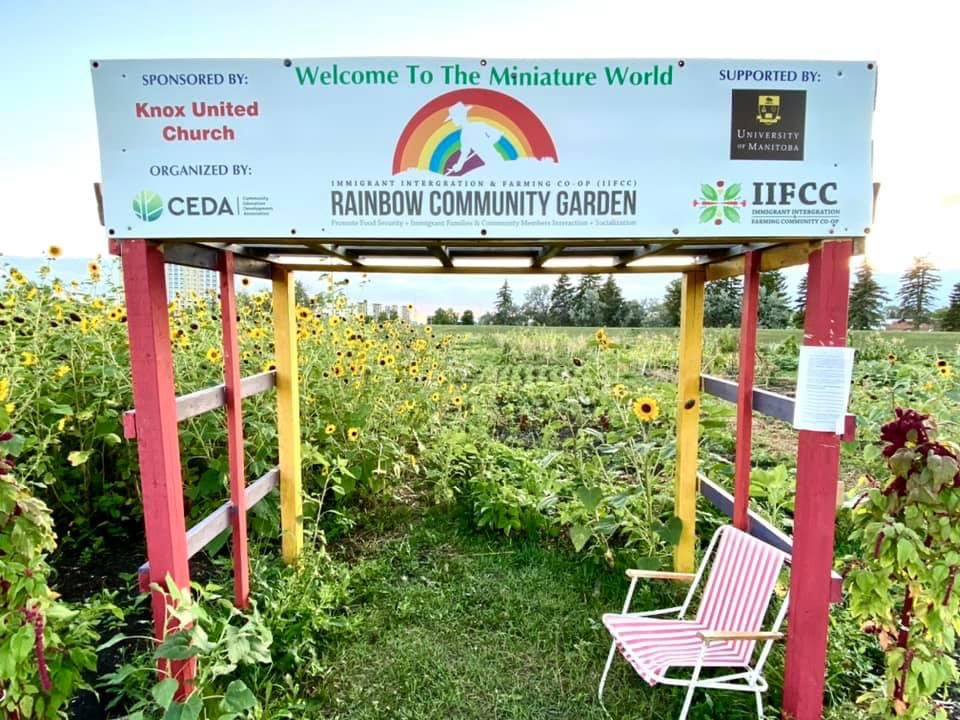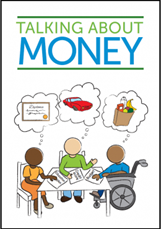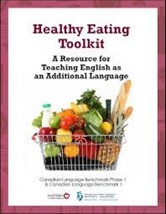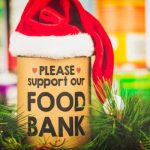Access to healthy food for your family is fundamental to feeling secure and happy in your new home. You should continue to cook the food you love in order to maintain a connection with your culture, but it is also important to learn how to use food products grown locally as they are often more affordable and easy to find.

Nutritious food does not have to be expensive, and the Home & Family website was designed to provide trusted information to help you prepare healthy meals with affordable and available food items in Manitoba.
Learning about Food in Manitoba
There are many delicious locally grown foods in Manitoba that you can use in your cooking. Read What’s in Season on the Prairies for a list of what fruits and vegetables are in season, as they are most flavourful and often less expensive to buy in these months.
For a list of vegetables grown in Manitoba and how to use them, visit Peak of the Market. Download their free RECIPE app for hundreds of ideas of how to cook Manitoba vegetables.
Another excellent website with information and recipes is HalfYourPlate.ca.
Canada’s Food Guide was developed by the Government of Canada and it provides information for making healthy food choices. The guide is available in many languages and is an excellent resource for learning to eat well.
Buying Local Foods is an overview of what food is produced and harvested right here in Manitoba. For recipes and ideas on growing and using local food products, read Grow Your Own Food and Cooking with Manitoba Foods.
We have English, French, Arabic and Somali narrated versions of our video resources. Visit our Video Resources page to see them all.
Where to Buy Traditional Ingredients
Members of your community will be able to offer the best advice on where to buy traditional ingredients, especially if you live in an area that has limited grocery stores. Remember that traditional ingredients may not taste the same, or as fresh as when you were living in another country. This is because preservatives are added to foods in order to keep them fresh while they travel a long distance to Canada. Prices may also be higher due to the distance food has to travel to reach the grocery stores in Canada.
Many of the larger grocery chains have sections in the store for ethnic foods and imported produce. Some stores will include specific sections for kosher, halal and vegan diets. If you cannot find the ingredients you are looking for, do not be afraid to ask a sales associate in the store for help. You may need to visit a specialty food store to find some ingredients, but the majority of your shopping should be in larger stores where you can find better prices.
Shopping tips: Most healthy, fresh foods are found along the outside edges of the grocery store. This includes items like vegetables, fruit, meat, milk/dairy and baked goods. The centre aisles are usually for non-perishable (dried or canned), packaged and processed foods.
Your best tool in choosing healthy foods is to learn to read the nutrition labels on foods. This information will help you to compare food items and choose the ones that are best for you. Read more in Food Shopping and Understanding Food Labels for help in grocery shopping.
If you shop in Winnipeg, click here for a current list of grocery stores selling foods for traditional newcomer diets.
Community Gardens and Community Kitchens
Community gardens are gardens that a group of people work on together. They share the work of planting, watering and caring for the garden and they also share the food that is harvested. Gardening in a group is an excellent way to meet others in your area and it also gives the opportunity to grow some of the foods you love from back home.

The Rainbow Community Garden located at the University of Manitoba is a project started in 2008 by new immigrant members of the Knox United Church. It has grown to include acres of land and is now managed by the Immigrant Integration Farming Community Co-op.
Produce from the garden not only feeds the families who work in the garden, but extra vegetables are sold at the Central Market in Winnipeg throughout the summer.
To learn more about this successful community garden and hear the stories of the people who work in it, please read:
Growing Food, Sharing Culture at the Rainbow Community Garden in Winnipeg, Canada from Canadian Food Studies, November, 2020
Growing Community from the Winnipeg Foundation, March 2020
Community kitchens provide a space where people gather to prepare and cook meals together. They are more than just a place to cook. They are a place to share ideas, try new flavours, build food skills and connect with others in your community. Participants usually share in planning, purchasing ingredients and cooking, and afterwards everyone can take food home to their families. They are used by people who want to meet others in their community, and who enjoy sharing and learning new food skills. Read Community Kitchens for more information.
Resource Centres can Help
Immigrate Manitoba has many links to services that will help you to get the assistance you need to enjoy your life in Manitoba. Click on the Interactive maps below for agencies serving Newcomers:
Within the Province of Manitoba, outside Winnipeg
Another way to locate services in your area, call 2-1-1 or go to mb.211.ca to search for information about services near you.
Food and Nutrition Services
Some of the resource centres serving newcomers offer cooking and nutrition classes to assist you in learning about Manitoba foods. For example, the Immigrant Centre in Winnipeg offers an eight-week Cooking and Nutrition program. The Westman Immigrant Services in Brandon also offers World Cooking Classes.
Check with a resource centre or community kitchen close to you to find out if there are food and nutrition skills classes available.
Help to Access Food
If you are having difficulty trying to access good food, reach out to your local community centre or to one of the newcomer-serving agencies in your area.
Food banks across the province operate under Harvest Manitoba. Read the article Community Food Programs for more information on how to access food hampers and emergency food programs.
Other Useful Information:
Community Financial Helpline provides information and help with applying for government benefits and income supports. They can also assist with tax filing services and other financial counselling needs. Call or text 431-813-4357.

Talking About Money is a good resource to learn about money and basic banking in Canada.

Healthy Eating Toolkit was developed to teach English while providing a basic introduction to food and nutrition vocabulary.
Read these articles next:
Save Money at the Grocery Store
Kitchen Staples






